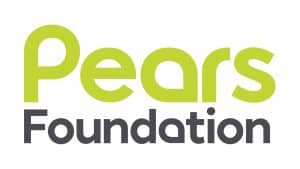The quality of our closest relationships affects every aspect of our lives. They impact how we feel about ourselves, how well we are able to work, our mental health, our wellbeing, our physical health, and our long-term outcomes. They also greatly impact the lives of those around us – most significantly, our children.
Following our webinar with the Children and Young People’s Mental Health Coalition on parental relationships and children and young people’s mental health, this blog will look at the impact parental conflict has on children and young people.
The impact of parental conflict on children
The quality of the couple relationship has material and measurable consequences on the emotional, cognitive and physical wellbeing of children and young people. By the couple relationship, we refer to couples in all their forms and diversity- couples who are together, separated, co-habiting, married and in any dimension or form. Research on the impact of inter-parental conflict on children has a long and established history. From as far back as the 1930s it has been recognised that discord between parents has a potentially debilitating effect on children’s psychological development (Towle, 1931). Whilst periodic conflict between couples is natural, and something which most children will be exposed to at some point in their lives without necessarily experiencing adverse effects, research shows that couple conflict which is frequent, intense and poorly resolved is very harmful to children of all ages.
The impact of parental conflict on a child’s mental health
Babies as young as six months exhibit higher physiological symptoms of distress such as elevated heart rate in response to overt, hostile exchanges between their parents when compared to exchanges between non-parental adults. Infants and children up to the age of five years show signs of distress by crying, acting out, freezing, as well as withdrawing from or attempting to intervene in the actual conflict itself.
For children between the ages of 6 and 17 years, they can show signs of emotional and behavioural distress when exposed to ongoing, acrimonious exchanges between parents (Harold, Pryor & Reynolds, 2001). Exposure to couple conflict can manifest itself in a number of ways in young people- including increased anxiety, depression, aggression, hostility, anti-social behaviour and criminality as well as deficits in academic attainment (Harold, Aitken & Shelton, 2007). Indeed, research has shown that “poorly resolved conflict put their children’s mental health and long-term life chances at risk” (Gordon Harold, 2016).
What we need to do
Historically, inter-parental conflict has been considered a threat to children’s mental health and wellbeing only if it is overt, openly acrimonious or hostile in form and content. Research conducted in recent decades, however, has highlighted how children’s exposure to discordant, but non-violent, conflict between parents also exerts negative effects on child development (Cummings & Davies, 2010; Rhoades, 2008). Studies show that conflict between parents need not be overtly hostile in order to adversely affect children.
In order to protect children and young people’s mental health, greater acknowledgement is needed by practitioners and policy-makers that conflicted behaviour between parents exists across a continuum of expressed severity – and that each type is damaging to young people’s wellbeing. Promoting intervention programmes and assessment strategies that focus on the parental relationship and provide helpful conflict resolving strategies will help to rectify the negative consequences family stress, family conflict and family breakdown has on children’s mental health and wellbeing.
Author: Holly Ingram, Tavistock Relationships
About Tavistock Relationships
Tavistock Relationships is an internationally renowned charity for advanced practice, training and research to support couples, individuals and families. We train the next generation of couple therapists and provide clinical services to couples and parents, face to face (in London) and online. We provide a range of affordable services to help people with relationship difficulties, sexual problems and parenting challenges. Our vision is a world in which strong relationships provide stability and security for adults and children, by ensuring that effective relationship support is accessible to all.





